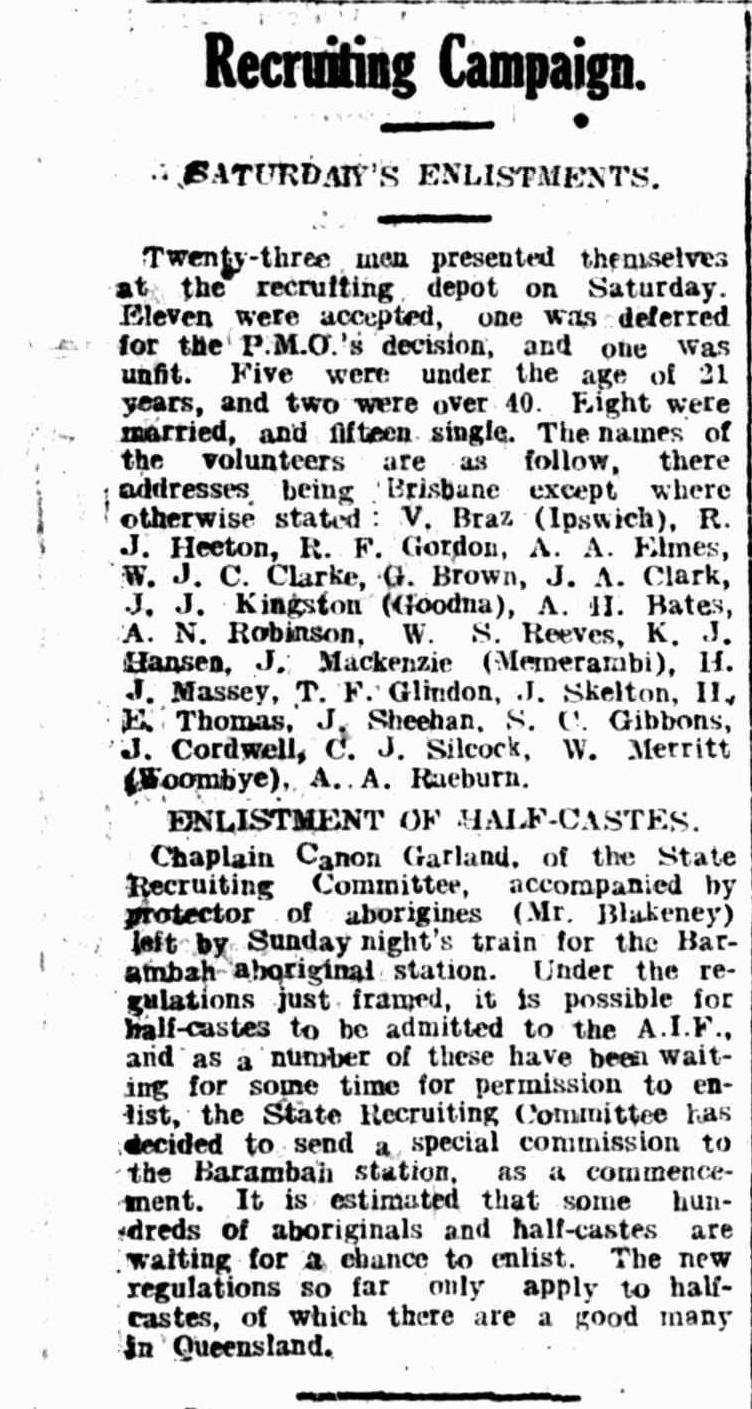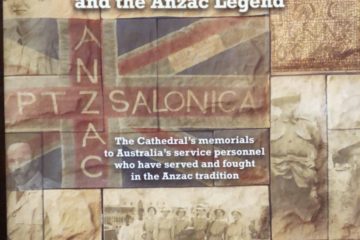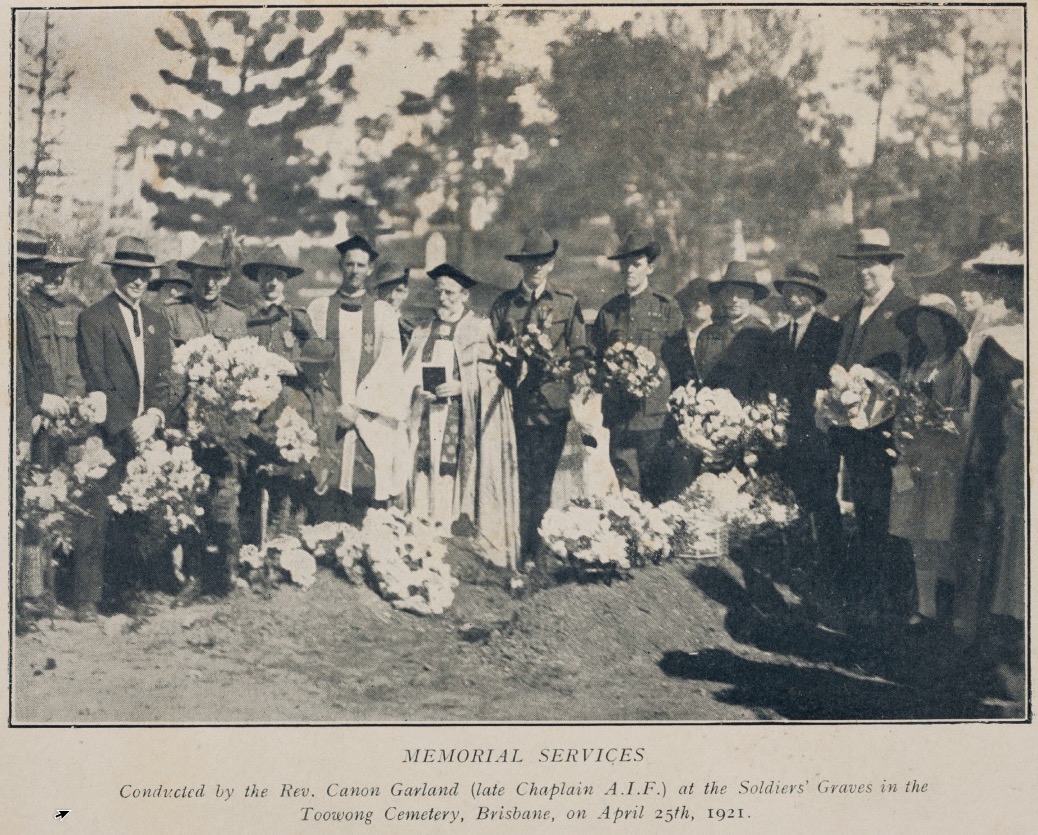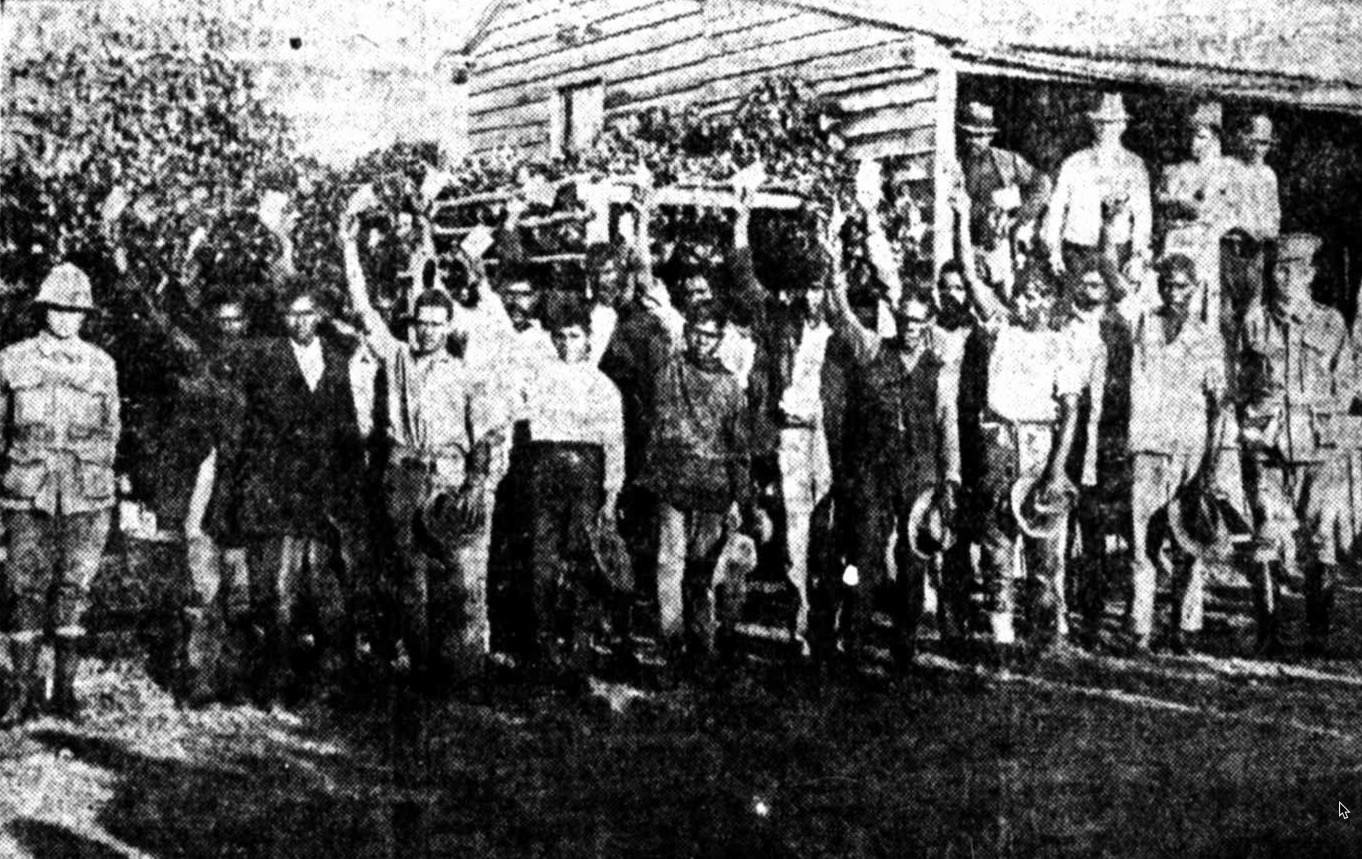Welcome home
CANON GARLAND WELCOMED.
MR. HUGHES AND A WHITE AUSTRALIA.
HIGH TRIBUTES TO HIS WORK.
THE welcome home extended to Canon Garland [ David John Garland ] in the Albert Hall last night [ 16 September 1919 ] by members of the Soldiers’ Church of England Help Society was largely attended.
The hall was tastefully decorated with flags, ferns, and flowers, and the proceedings were characterised by great enthusiasm.
The guests were received by Lady Morgan (patroness) [ Alice Augusta Morgan, neé Clinton ] and Mrs Le Fanu (president) [ Margery Annette Ingle Le Fanu, neé Dredge ].
The function took the form of a social gathering, and music was furnished by Mr. G.B. Nigro’s orchestra.
Bishop Le Fanu [ Henry Frewen Le Fanu ], who presided, said he was glad to be present to welcome Canon Garland.
It was fine to see him back again looking so well and fit. They felt great gratitude towards the canon, for no society could have had a better representative at the Front.
They were grateful to him for what he had done in the name of the society on the other side. (Applause.)
Archbishop Donaldson [ St Clair George Donaldson ] said that as an outsider – for he was not an official of the Society – he was there to rejoice with them on this happy occasion.
They were all delighted to see Canon Garland back again looking so fit and well.
Their gathering was more than a mere personal welcoming back of Canon Garland. It was, in addition, a rounding up if the war phase of the work of the Soldiers’ Help Society.
The occasion for the work had passed away. They now had a chance of surveying the work, and if they boasted a little there was some excuse for it.
It was Canon Garland who initiated this work, and they owed him much for the wonderful piece of work in existence today.
They must also express their gratitude to the women who had carried out the work.
They had suddenly woke up to find that the women had a far-reaching influence.
Their wonderful zeal would not be allowed to die out, but would be a forward movement for the Church.
The work to be done now would require even more patience and skill than was required before the war, and that was the task of getting the boys back into profitable occupations.
It would not be easy, for it would be uphill work, but they would do it.
He had great hopes for the future in the work of the society, which was founded by Canon Garland. (Applause.)
Canon Garland, who received an ovation, said he was glad to be back amongst them again, and he thanked them for the welcome they had given him.
In the course of an interesting address on the work in which he had been engaged he said, referring to Australia, that they would now have to make Australia what it ought to be.
They had two things to do – first, to take care of their soldiers who had made it possible for them now to live in Australia – (loud applause) – and secondly, they had to prepare for the future of this great continent.
He believed that the whole future of the Pacific and all that it implied depended upon Australia.
The danger to them, so far as the Pacific was concerned, was much more than the public had grasped.
They owed their white Australia today to one man – Mr Hughes [ William Morris Hughes ] – (loud applause) – who had had to put up almost a single-handed fight against the Allies on that question, and now they had to show that they would stand behind him if they wanted to keep this country a white Australia. (Applause.)
Homes had to be filled with children, and then there must be a great and generous scheme of immigration for people of their own race. (Applause.)
It was necessary that they should now realise their duty.
He was glad to be back with the Church in Queensland, and was glad to find three marks of vigour – the missionary effort, which had not failed, the increased development of a definite educational policy, independent of State aid or State interference – he hoped it would grow – and the movement for a Church of England memorial to soldiers.
Nothing could be more appropriate.
The Society would carry on as long as the soldiers wanted it to. (Applause.)
Refreshments were handed round under the supervision of Mrs. S. Chessher [ Susanna Chessher ].
During the evening Miss F. Chessher [ Elizabeth Florence Chessher ] pleasingly sang “Your Land and Mine”.
– from page 10 of “The Brisbane Courier” of 17 September 1919.

ABOVE: In May 1917, Canon Garland made his way from Brisbane to the Barambah Settlement seeking to new recruits. This item ran on page 4 of “The Telegraph” newspaper on 15 May 1917.


